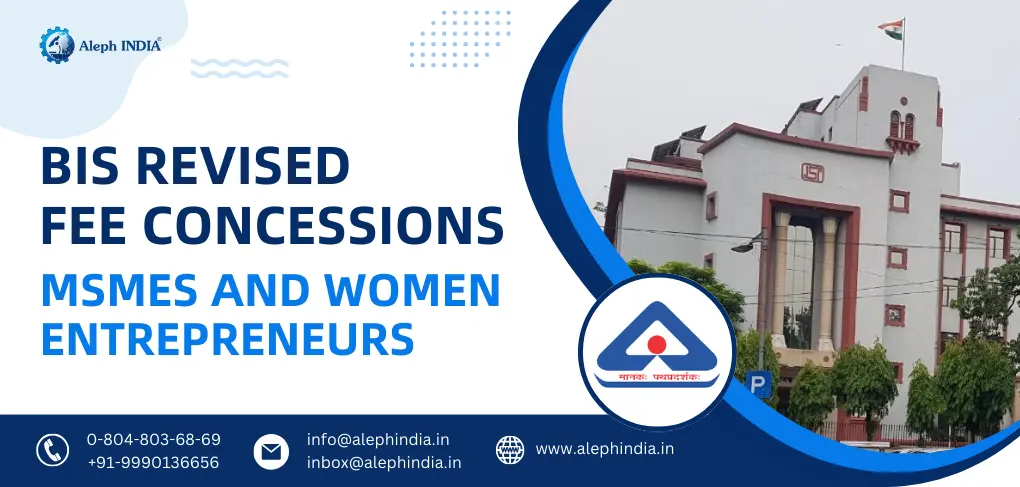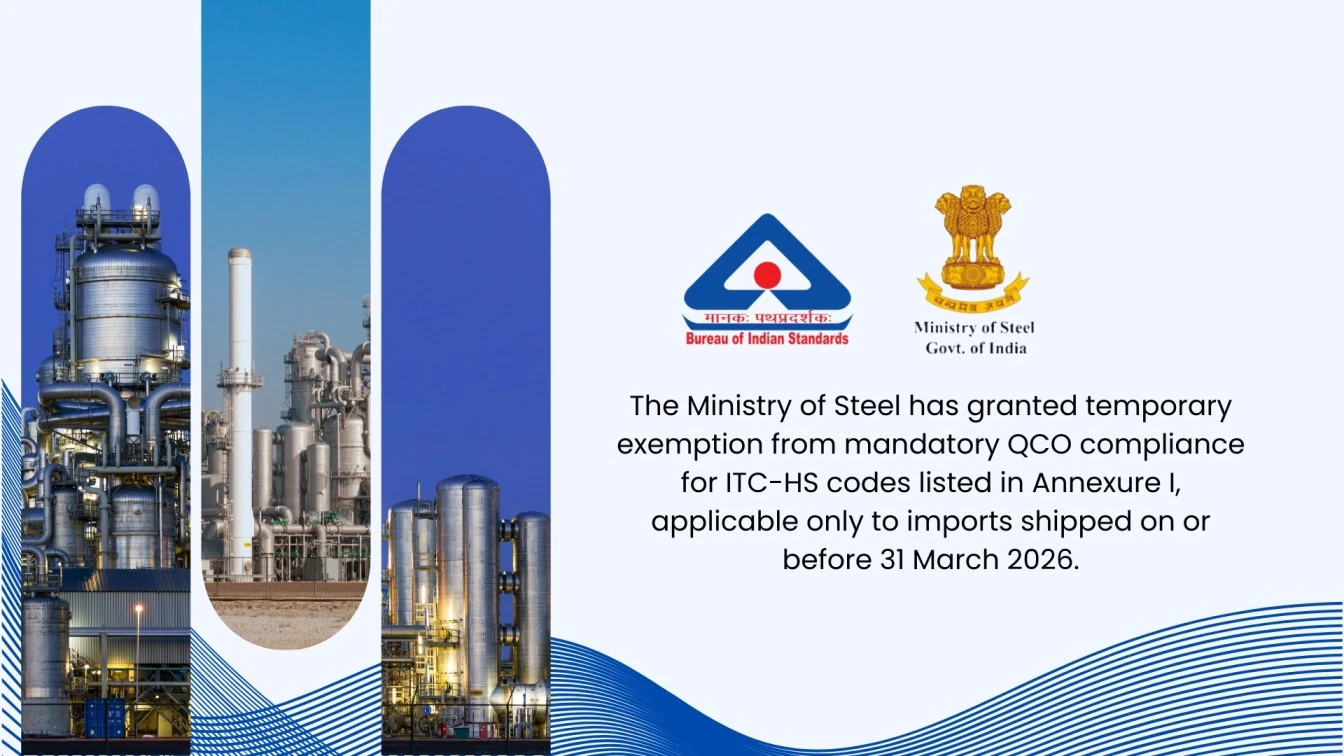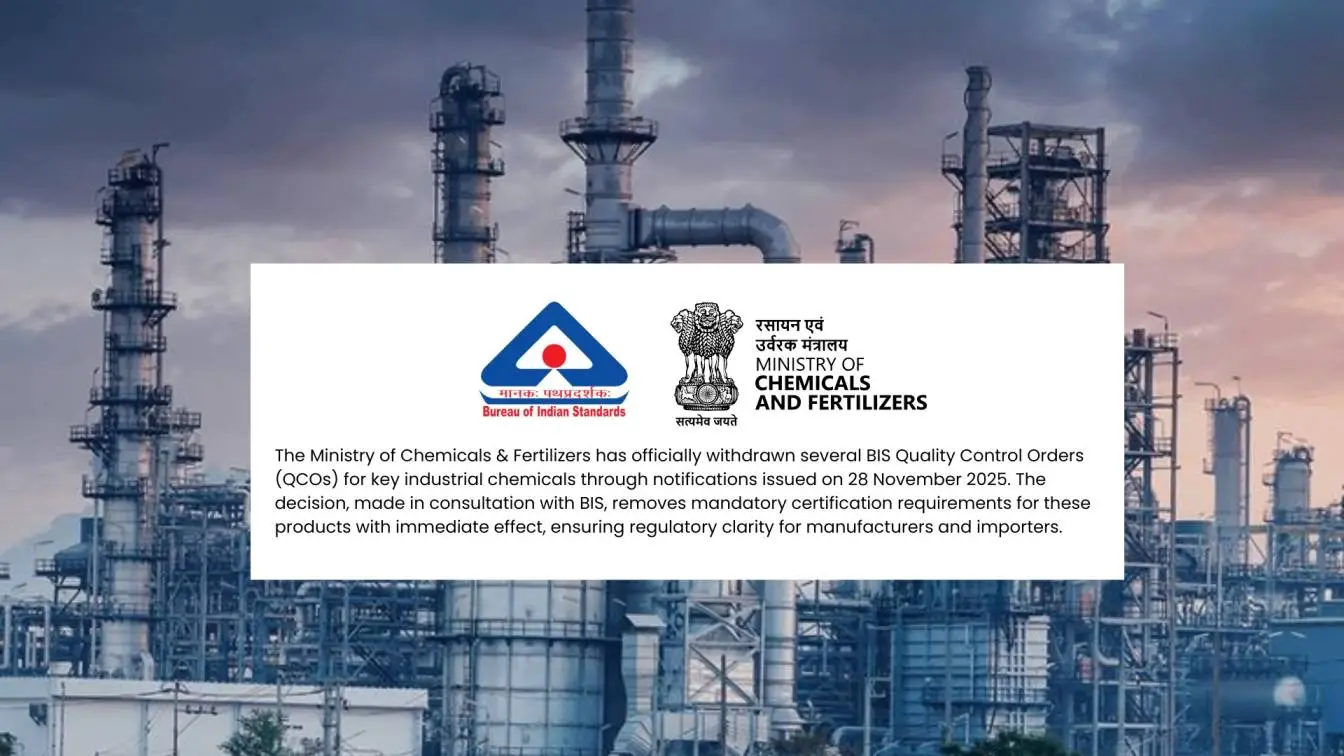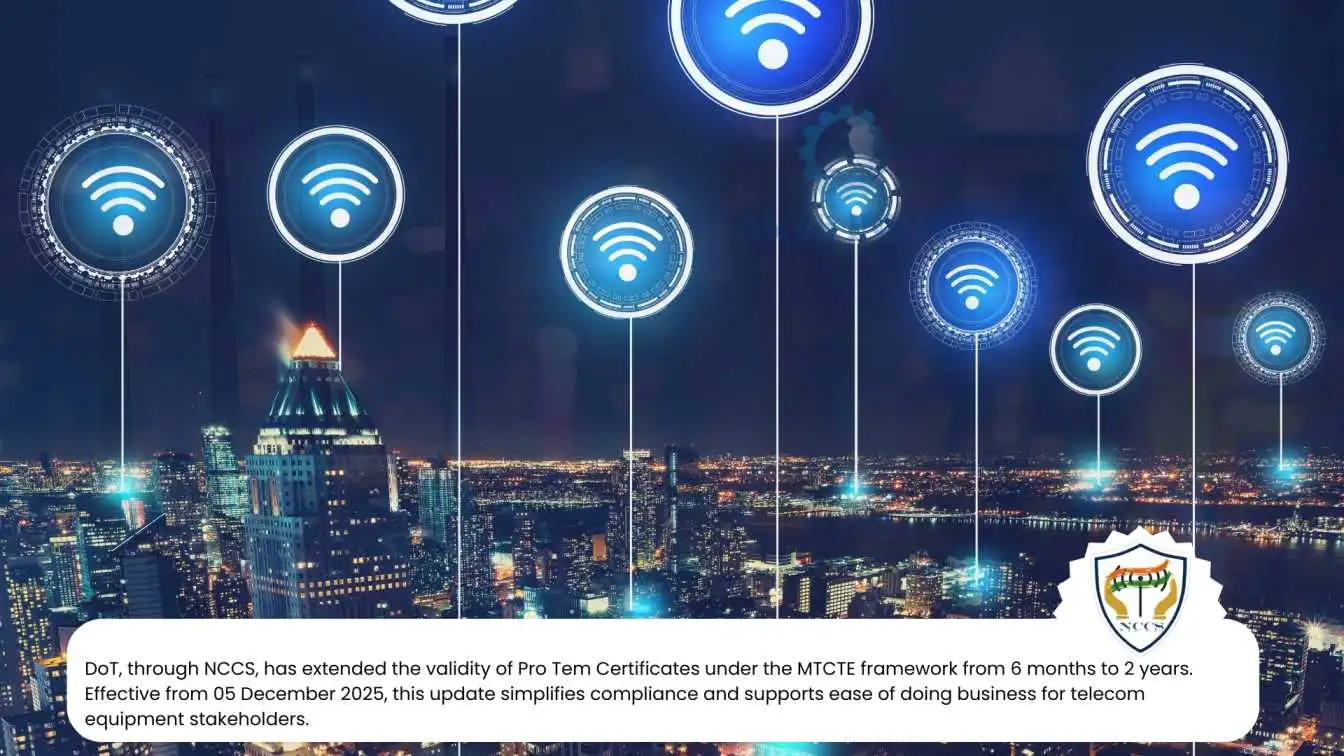- HOME
- ABOUT US
- SERVICES
-
LICENCE & CERTIFICATION
- BIS (ISI MARK) FOR FOREIGN MANUFACTURERS
- DOMESTIC PRODUCT CERTIFICATION (ISI MARK)
- BIS SCHEME X CERTIFICATION
- BIS CERTIFICATE OF CONFORMITY (CoC)
- BIS HALLMARKING
- REACH CERTIFICATION (GLOBAL)
- LABORATORY RECOGNITION SCHEME (LRS)
- WORLD MANUFACTURER IDENTIFIER (WMI) CODE
- ECO MARK
- TAC APPROVAL FOR AUTOMOBILE
- PESO CERTIFICATION
- SASO CERTIFICATION
- CDSCO CERTIFICATION
-
REGISTRATION
- BIS (CRS) REGISTRATION FOR ELECTRONIC PRODUCT
- WPC-ETA APPROVAL
- BEE CERTIFICATION
- E-WASTE MANAGEMENT (EPR)
- EPR REGISTRATION FOR PLASTIC WASTE MANAGEMENT
- EPR REGISTRATION FOR BATTERY WASTE MANAGEMENT
- EPR REGISTRATION FOR USED OIL
- LEGAL METROLOGY (LMPC)
- TEC/MTCTE APPROVAL
- CE CERTIFICATION
- UL CERTIFICATION
- ROHS LICENCE
- DRONE REGISTRATION
- MOEF LICENCE
-
AUXILIARY
- STANDARDIZATION (SCIENTIFIC) DIVISION
- TRAINING SERVICES (NATIONAL & INTERNATIONAL)
- IMPORT/EXPORT LICENCE
- FSSAI CERTIFICATION
- MSME/SSI/NSIC REGISTRATION
- ISO REGISTRATION
- BRAND REPRESENTATION
- LABORATORY EQUIPMENT AND SETUP
- TRADEMARK REGISTRATION
- MAKE IN INDIA SUPPORT
- AG-MARK LICENCE
- THIRD PARTY INSPECTION AND MONITORING SERVICES
-
- PORTFOLIO
- UPDATES
- CONTACT
- LOGIN

Empowering MSMEs and Women Entrepreneurs: BIS's Revised Concession Fees
Introduction
In a significant move aimed at fostering growth and inclusivity in India's entrepreneurial landscape, the Bureau of Indian Standards (BIS) has announced revised concession fees for Micro, Small, and Medium Enterprises (MSMEs) and women entrepreneurs. This announcement, made by Pramod Kumar Tiwari, Director General of BIS, during the 77th BIS foundation day, marks a pivotal step towards facilitating easier access to certification and marking for these vital sectors of the economy.
Concessions for MSMEs: Alleviating Financial Burdens
The concessions unveiled by Tiwari underscore BIS's commitment to supporting the growth and sustainability of MSMEs, which are the backbone of India's economy. With a 20% concession on certification and minimum marking fees for small and medium enterprises, BIS aims to alleviate financial burdens and streamline the process of compliance for these businesses. This reduction in fees not only reduces the financial strain on MSMEs but also incentivizes them to prioritize quality standards, enhancing their competitiveness both domestically and internationally.
Empowering Micro-Scale Units: Concessions for Micro-Scale Units
Moreover, the announcement holds particular significance for micro-scale units, which play a crucial role in driving employment and economic development at the grassroots level. By granting an 80% concession on certification and marking fees for micro-scale units, BIS is empowering these enterprises to invest more resources into innovation, expansion, and skill development. This targeted support acknowledges the unique challenges faced by micro-enterprises and demonstrates BIS's commitment to fostering their growth and resilience.
Promoting Gender Inclusivity: Concessions for Women Entrepreneurs
In addition to supporting MSMEs, BIS's revised concession fees also prioritize gender inclusivity and women's entrepreneurship. Recognizing the valuable contributions of women entrepreneurs to India's economic landscape, BIS has introduced a 50% concession on certification and marking fees specifically for women-owned small and medium-scale enterprises. This initiative not only promotes gender equality and women's empowerment but also acknowledges the potential of women-led businesses to drive innovation, create employment opportunities, and contribute to economic growth.
Implications and Opportunities
The significance of BIS's announcement extends beyond mere financial relief; it represents a broader commitment to nurturing a conducive ecosystem for entrepreneurship and innovation in India. By reducing barriers to certification and marking, BIS is facilitating greater market access for MSMEs and women entrepreneurs, enabling them to compete effectively on both national and global platforms. Furthermore, these concessions align with the government's broader agenda of promoting ease of doing business, fostering economic growth, and advancing social inclusivity.
Challenges and the Way Forward
However, while the revised concession fees are a step in the right direction, sustained efforts are needed to address the multifaceted challenges faced by MSMEs and women entrepreneurs. This includes providing targeted capacity-building support, facilitating access to finance and technology, and addressing regulatory bottlenecks. Moreover, concerted efforts are required to raise awareness about the importance of quality standards and certification among MSMEs and women entrepreneurs, ensuring that they fully leverage the benefits offered by BIS's initiatives.
Conclusion
In conclusion, BIS's announcement of revised concession fees for MSMEs and women entrepreneurs represents a significant milestone in India's journey towards fostering inclusive and sustainable economic development. By providing financial incentives and support mechanisms, BIS is empowering these vital sectors to thrive, innovate, and contribute meaningfully to India's growth story. As we navigate the challenges and opportunities of a rapidly evolving global economy, initiatives like these are instrumental in unlocking the full potential of India's entrepreneurial ecosystem.


















